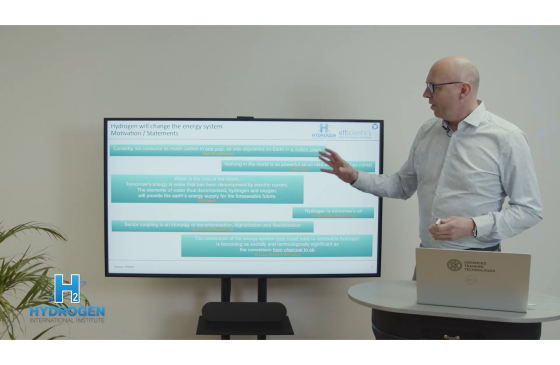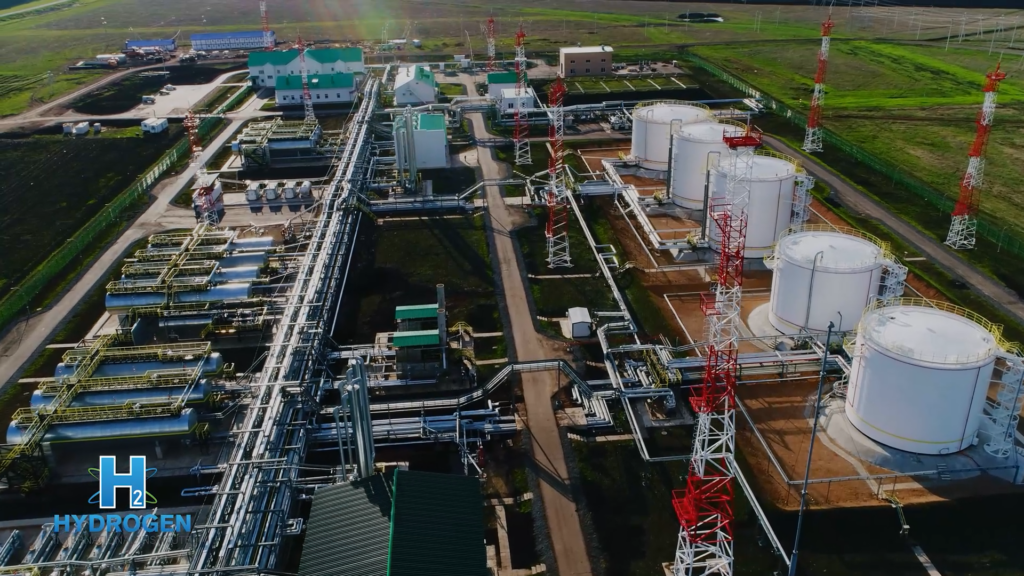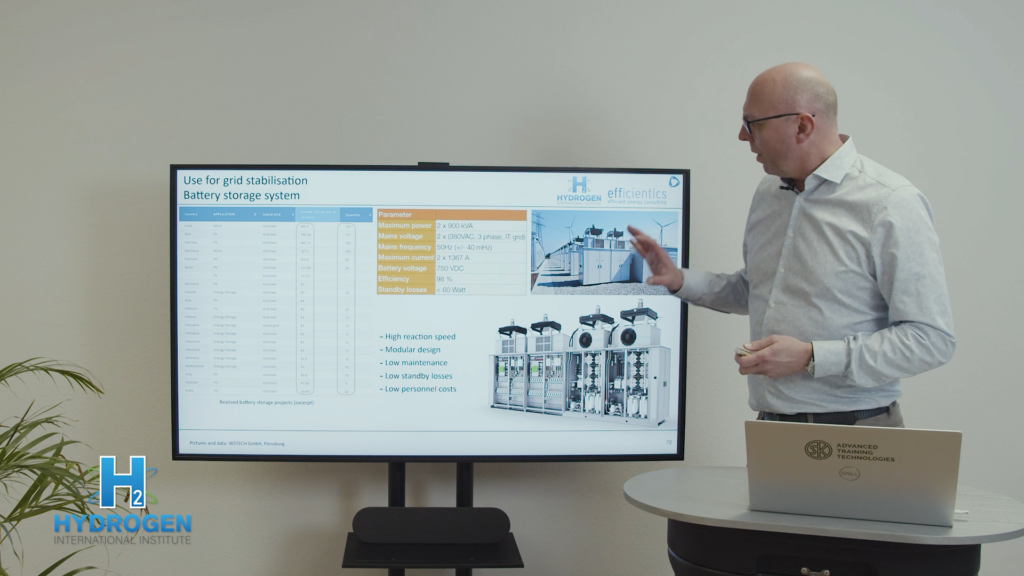Hydrogen for Sector Coupling - Online Course by ATT
ADVANCED TRAINING TECHNOLOGIES GMBH235.25 €/ Course
- Course duration: 3 h 52 min
- The course “Use of Hydrogen for Sector Coupling“ covers technical, economic and regulatory aspects of the use of hydrogen.
- A strategic overview of the interconnections between decarbonization, digitalization and flexibilization.
- The online course is available in both English and German.
- The courses include a final test and a certificate of participation.
- Watch the free course preview here!
- Register for the course here!
Hydrogen for Sector Coupling - Online Course by ATT
- The course “Use of Hydrogen for Sector Coupling“ covers technical, economic and regulatory aspects of the use of hydrogen.
- It provides a strategic overview of the interconnections between decarbonization, digitalization and flexibilization.
- At the end of the course, participants should be able to understand and assess the opportunities and challenges of using hydrogen.
Key benefits
- The acquired knowledge enables the participants to make strategic decisions based on the current context regarding the use of hydrogen as a coupling medium between different sectors (green electricity, mobility, industry and heat).
- The participants have knowledge of the basic context of sector coupling, as well as the applied hydrogen technologies, and can use this to further base strategic decision-making processes.
- Online course "hydrogen for sector coupling" is available in both english and German language.
Target audience
- Strategic decision makers from companies who need to gain a clear overview of what the energy transition and specifically "sector coupling" with hydrogen means and how their company can positively participate.
- Technical planners who make conceptual developments.
- Project managers and product managers who have to drive the energy transition in their companies and have to consider technical and economic aspects.
- Technical advisors, trainers and engineering companies that have recently started working with hydrogen.
Learning objectives
- Sector coupling: definition of sectors, challenges and potentials
- Use of hydrogen in the steel industry, chemical industry, petrochemical industry (for the production of synthetic fuels), off-grid applications, grid stabilisation, mobility and heat generation.
Course trailer
Course content
- Definition: Definition of sectors, energy consumption of sectors, offshore wind energy potential, explanation and examples of PtX (PtC, PtG, PtH, PtL, PtM, PtP), Necessary coupling technologies and intermediates.
- Technologies: Sector coupling by 2050: challenges and necessity: advantages and disadvantages. Hydrogen roadmap, technologies for large-scale H2 production in comparison: electrolysis, methane pyrolysis, steam cracker, transport in the natural gas grid, storage in caverns.
- Decarbonisation of the Industry: Sector coupling: advantages and disadvantages, storage possibilities of different forms of energy, conversion losses, phases of decarbonisation of industry, CO2 saving potential of the chemical industry, colours of hydrogen, cost scenarios, exemplary sector coupling projects.
- Steel Industry and H2: Use of hydrogen in the steel industry: energy demand, steel production processes without and with hydrogen, direct reduction, comparison of processes, copper production with hydrogen
- Chemical Industry and H2: Use of hydrogen in the chemical industry: Energy demand, Synthetic base materials, Ammonia and methanol: The most important base materials in the chemical industry, Desulphurisation of fuel (hydrosulphurisation)
- Synthetic Fuels (PtL,PtG): Use of hydrogen in the chemical industry for the production of synthetic fuels (PtL, PtG) and synthesis gas as a basis for further processes.
- Autonomy through H2: Use of hydrogen to supply off-grid applications: Examples of autonomous and gas grid-connected projects.
- H2 for Grid Stabilisation: Use of hydrogen for grid stabilisation: controllable loads (electrolysis) and demand-responsive power generation through hydrogen and battery storage.
- H2 in Mobility: Use of hydrogen in mobility: cars, commercial vehicles, trains. Necessary infrastructure.
- H2 for Heat Supply: Use of hydrogen in heat supply (private and industrial): District heating networks, H2 as a heating gas in the chemical industry, fuel cells for domestic heat supply.
Watch free course preview here!
Contact us
- Gain expertise and legal certainty in handling hydrogen with Hydrogen Institute"s practical video courses. Intersted? then register now to the course and dive into the world of hydrogen.
| Brand | Advanced Training Technologies |
Green hydrogen produced with electricity from renewable energies is the key to success for the energy transition. Advanced Training Technologies focuses on developing the entire spectrum of green hydrogen technologies for the mobility sector. The goal is to familiarise professionals with the latest technologies and make them fit for the energy transition. To this end, the “Hydrogen International Institute” (abbreviated to “HII”) offers practical training and courses that teach the fundamentals, technologies and applications surrounding hydrogen production, storage and use. Their courses and further trainings are designed to strengthen the competences and skills of the participants and to enable them to successfully master the challenges of the energy transition.
























